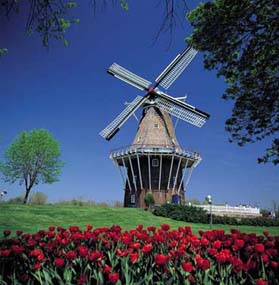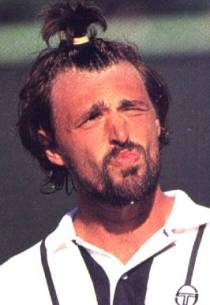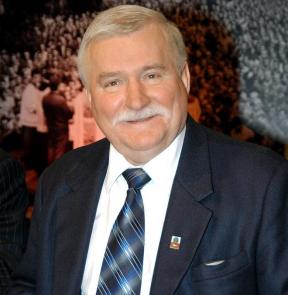.
.


The consensus after another breathtaking instalment of Euro 2008 last night was that Turkey were incredibly unlucky not to beat Germany and reach their first ever major tournament final. The facts are that Turkey outplayed Germany and should have won the match, but that they didn’t had very little to do with luck.
The conclusion of luck being the decisive factor is arrived at either by romantics who felt cheated by the denial of an exciting upset, or red faced pundits who so confidently predicted an easy German win, despite all evidence saying that the tournament is highly competitive and tough to predict. The latter were very much in evidence on the BBC, with messrs Hansen, Shearer and O’Neill learning nothing from their experience with Holland on saturday, and all making no case for even a competitive Turkish display let alone a result.
If, when reflecting this morning on how they let their chance slip despite wiping the floor with Germany for almost the entire match, Turkey also feel they were dealt a poor hand, I would ask them two things: Firstly, how unlucky was it that your goalkeeper got himself suspended for deliberately pushing someone over infront of the referee, and that the best you could do for a replacement was an ageing clown? Secondly, how unlucky was it that despite dominating possession and continually exposing the German defence as being average at best, you failed to nail your chances? As managers have been keen to remind us in many a post-match interview down the years, you make your own luck in this game.
Turkey should have ended the night celebrating a magnificent overturning of the odds, and a spectacular tactical victory. Fatih Terim produced another coaching masterstroke, with a gameplan of all-out attack that stunned the Germans and everyone else. Germany would surely have gone into the game fairly confident of spending most of the game in the ascendancy, thinking that their biggest problem would be getting past a Turkish back nine. This, after all, was how Turkey approached the quarter-final against Croatia, and they went into last night’s game with their side further damaged by injury and suspension.
The Turks’ radical change of tactics took the Germans completely by surprise, and allowed them to dictate throughout. They went for it pretty much straight from the kick-off, and the totally unprepared German defence looked a shambles in trying to deal with it. Turkey initially looked to have benefitted from one of their injuries, as Colin Kazim-Richards (or Kazim Kazim as he’s known to the Turks), in for the injured Nihat, caused Germany huge problems early in the game with his pace, though as the game wore on he ran out of gas. After a succession of near things however, it was Kazim’s shot that hit the bar and bounced out to Ugur Boral who snaffled the first goal.
In truth, the Turks should have been infront before then, and they were made to pay almost immediately; the lead they had worked so hard for was wiped out in the space of four minutes as lazy defending allowed Podolski to cross from the left, and Schweinsteiger to nip infront at the near post. A 1-1 half-time score was an unbelievable result for the Germans who desperately needed the break to try and formulate plan B, but whatever they came up with didn’t work as they were soon pinned back again.
The second half was quite different to the first, but still dominated by the Turks. In the first period they had whizzed around the Germans like eleven red blurrs, hurrying and scurrying and creating panic in the German rearguard with their urgency. They had relied on this defensive chaos for their chances however, rather than putting together moves that flowed cohesively. In the second half the Turks slowed things down a little, but this time gave the Germans a lesson in passing, movement and technique, knocking the ball around with complete assurance and starving the Germans of possession. They were forcing the Germans further back, but this time, ironically, failed to apply the urgency needed to create chances.
It appeared as though the pressure would eventually tell on the Germans, their play had descended into aimless clearances that suggested desperation and, incredibly for a German side, they were beginning to look beaten. Turkey however, were a team trying to cover up a massive weak spot, and 11 minutes from time, it was exposed. Philipp Lahm put in a fairly harmless cross, and the embodiment of the phrase ‘dodgy keeper’, Rüstü Reçber, duly obliged. The veteran idiot dashed out hopelessly after the cross, was beaten to it easily by Klose, and Turkey’s hard work appeared to have been undone in a moment’s madness.
Against anyone else Germany may have thought that the goal had come late enough to be the winner, but it would have actually been more of a surprise if Turkey hadn’t scored in the remaining time. They duly equalised with four minutes to go, and this time it was the Germans’ unreliable goalkeeper who came up trumps, Lehmann finding a dreadful position at his near post that allowed Semih Sentürk to pop up with his third vital goal of the championships, after the magnificent Turkish full back Sabri Sarioglu had embarassed Lahm for the umpteenth time down the right hand side.
If anything though, Turkey scored too early this time. I think they must have been confused when the final whistle didn’t go immediately after they’d scored, and I’m not sure they knew what to do with themselves for the remaining four minutes plus injury time. Unfortunately, whilst they were thinking about it, the Germans came in and gave them a taste of their own medicine. In the fashion we’d become accustomed to from the Turks the Germans replied “think that’s a dramatic late goal? Huh! This is a dramatic late goal!”.
Said goal came from that man Lahm, who had been a strong candidate for being the worst player on the field with an absolutely wretched defensive performace. Like all good modern full-backs though, he looks much better in attack, and went on a charge which resulted in him starting and finishing a beautiful little interchange, transforming him from villain to hero in an instant. The Turks quickly learned how Croatia felt about Rüstü at the end of the quarter-final.
The Jekyll and Hyde Germans had been unrecognisable from the victory over Portugal, and no German more so than Michael Ballack. Where was he? With the Turks running rings around the German midfield, this man who had given a herculean display against Portugal was nowhere to be seen. Germany were missing everthing that Ballack provides, leadership, physical presence, a calm foot on the ball in midfield. There just appeared to be a huge Ballack-shaped hole in the German team. How could his form turn around so quickly? The question could easily be asked of both teams, such was the sea change in their performances from their previous outings.
It was an especially interesting night for our beloved broadcasters, and not just due to the punditry team taking yet another disastrous stroll through the minefield of prediction – though there was one notable member of that team who negotiated himself across safely, the wonderful Marcel Desailly, who has easily become the leading punditry craftsman of the tournament. Desailly identified before the game exactly how Turkey could hurt the Germans, and his colleagues should hang their heads in shame for dismissing the Frenchman’s view until it turned out that he’d been right all along.
Upstaging all that however was a freak thunderstorm in Vienna, where the BBC studio was situated and where the worldwide TV feed was powered from. The storm meant a significant part of the coverage was interrupted. The BBC apologised profusely for this, clearly expecting an enormous backlash. But why? The loss of coverage meant not only a lack of picture but also sound. That’s right! John Motson and Mark Lawrenson were silenced! I would personally like to wholeheartedly thank the BBC, or whichever Austrian was responsible, for these precious moments of respite.
Not only this, but the BBC quickly moved to get the commentary from Five Live to accompany the broken pictures. Now, us cool kids had of course switched to the Five Live coverage immediately on hearing Motson’s voice in the pre-match build-up, via the red button. For everyone else though, can you imagine the delight? Suddenly all the inane drivel is replaced by actual analysis, sharp observations, humourous asides that are actually funny, and – gasp! – commonsense! I wonder how many people who had previously been listening to Motty and Lawro went straight for their red button or nearest radio as soon as normal service was resumed. Chris Waddle by the way, is a first-rate summariser who should be moved several places up the beeb’s pecking order.
This match was also another success for Basle, which once again proved itself to be the stage on which to see drama. Basle has now given us Switzerland v Turkey, Germany v Portugal, Holland v Russia, and now this. Vienna on the other hand has given us three matches involving Austria, plus Croatia v Turkey, and Spain v Italy. Is it too late to launch a campaign to get the final moved?
Perhaps Basle has just been lucky? Or maybe the conditions there are more condusive to an exciting game? Maybe the BBC viewers struck lucky getting Motson switched off? Or were they just denying themselves some decent commentary in the first place? Are the Germans lucky to be in the final? Or do they just have the spirit to hang in there even when they’re having a shocker? And did Turkey endure bad luck? Or did they just pay for having inadequate players at the sharp ends of the pitch? Depends what you have invested in the answers I guess.
Turkey have left this tournament with many of it’s greatest memories. Long after someone has finished waving the trophy around on sunday, we will remember the dramatic moments that Turkey’s unpredictable tactics and incredible fighting spirit have produced. For the fact that they won’t be adding to the legacy on sunday however, they only have themselves to blame.



















